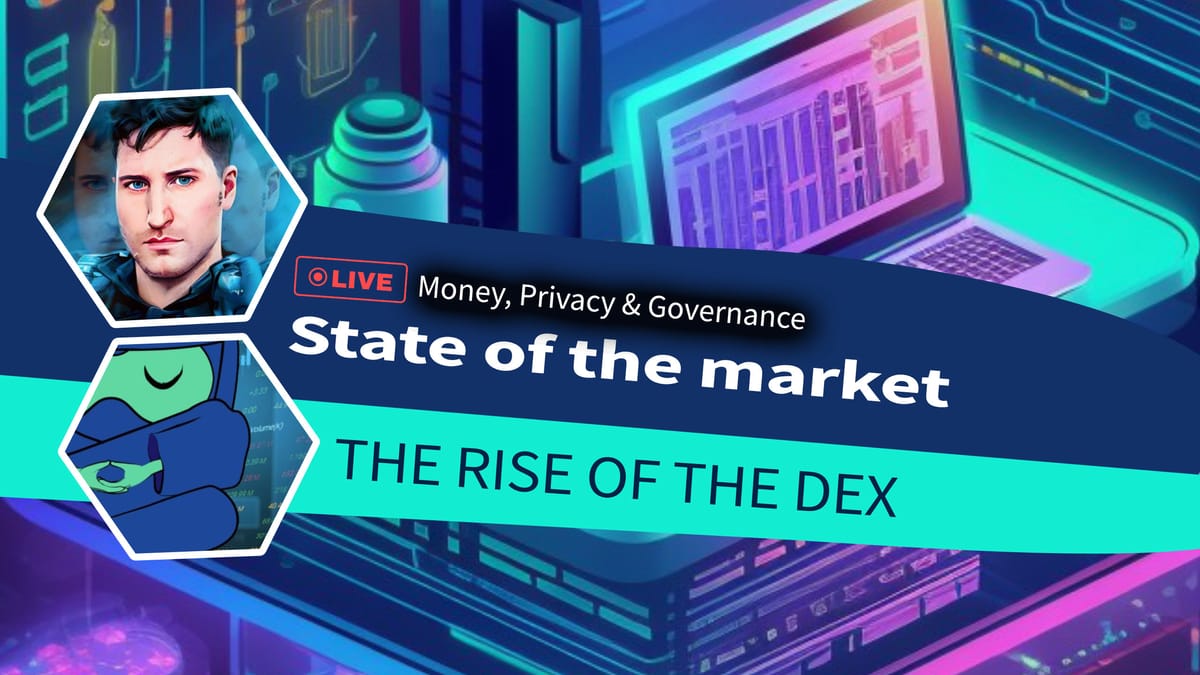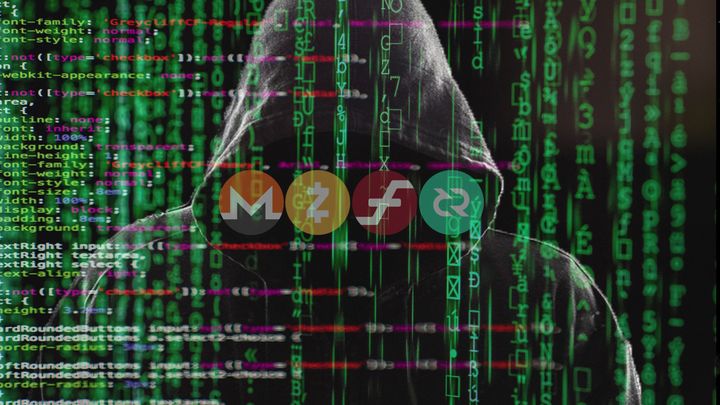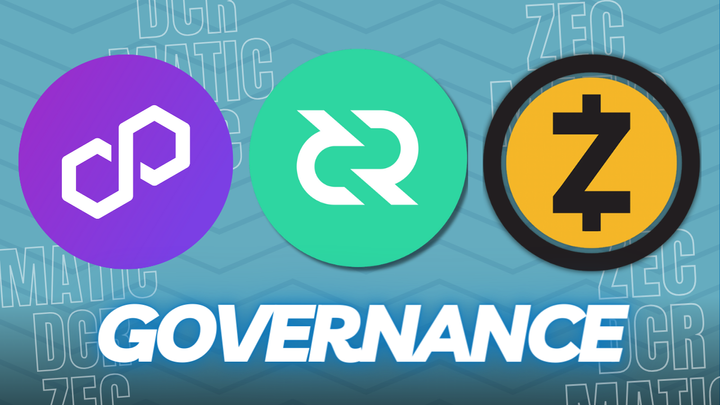Rise of the DEX - State of the market
Could DEXs offer a better solution for a decentralised crypto marketplace?

LISTEN TO THE PODCAST:
Decred and the State of the market is brought to you by Exitus and PhoenixGreen.
In this episode, we’ll look at the development surrounding crypto privacy restrictions, the CEX monitor tag and the inevitable delistings of non-compliant projects. And could DEXs offer a better solution for a decentralised crypto market?
Live stream agenda:
Crypto Privacy Restrictions
Are governments / authorities / regulators in coordination with centralised exchanges to reduce privacy coins effectiveness?
Firo reference — Is the upcoming introduction of Exchange Addresses a threat to privacy? How many restrictions will be applied until a project no longer resembles its original goals?
The CEX Monitor Tag
Binance added 10 additional coins to its monitor tag list, including FIRO, XMR, ZEC and ZEN. According to Binace.com, the Monitoring Tag is applied to tokens that exhibit notably higher volatility and risks compared to other listed tokens. Binance reported that these projects might be delisted in the future, if they fail to meet the criteria required by the exchange to keep being traded on its platform.
Digging a little deeper, some criteria for being added to the monitor tag includes, the commitment of the team to the project, development activity, trading volume, network stability, public communication, and contribution to a healthy crypto ecosystem.
Although at least four of the ten projects listed are privacy coins, this move seems more to do with external pressure than the listed criteria.
Inevitable CEX Delistings
Projects that have any real value as a decentralised alternative will be pressured into compliance or be regulated out of existence. Is this completely negative or is there a positive silver lining?
One question I often think about is, if a project can be forced to comply with regulations, how was it a decentralised project in the first place?
Will DEX Fill The Void?
Are the majority of DEXs an almost perfect replica of their centralised counterparts? Playing the same rigged games, e.g. fake volume, order manipulation, front-running, casino-based activity for gambling on winers and losers.
Typically, platforms that play these games are DEX in name only and are still run by rent seeking middlemen and value extractors.
Are DEXs susceptible to regulation restrictions?
“My expectation is the authorities and regulators will come for the easiest targets first, e.g. the operators, infrastructure, and profit taking middlemen.”
From what I’ve seen, most prominent so called DEXs have worked extremely hard on the monetisation area of their platforms. Working out ways in which the people who run the platforms can extract value. For example:
- Liquidity providers that subtract fees from each trade — middleman
- DEX exchange token — middleman
- DEX trading fees (maker / taker) — middleman
- Bots front-running trades
If a platform requires the above trading mechanisms, should it be considered a DEX?
Which suggests the question, does a DEX need to be monetised to remain active and open for business?
Is there such a thing as a true DEX?
If so, what are the unique values that make it a DEX?
- Multiple peers / servers to host the order books
- No KYC policies
- Easy to set up non-custodial wallets
- No trading fees
- No middle men or rent seekers
- No leaking private data
- Atomic swap technology — no middle man, the trade either happens or it doesn’t





Comments ()